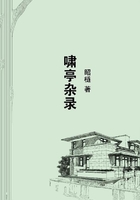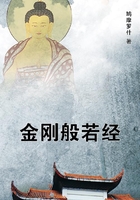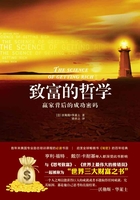1. The Burning ofEffigies in the Fires
WE have still to ask, What is the meaning of burning effigies in the fire at these festivals? After the preceding investigation the answer to the question seems obvious. As the fires are often alleged to be kindled for the purpose of burning the witches, and as the effigy burnt in them is sometimes called the Witch, we might naturally be disposed to conclude that all the effigies consumed in the flames on these occasions represent witches or warlocks, and that the custom of burning them is merely a substitute for burning the wicked men and women themselves, since on the principle of homoeopathic or imitative magic you practically destroy the witch herself in destroying her effigy. On the whole this explanation of the burning of straw figures in human shape at the festivals is perhaps the most probable.
Yet it may be that this explanation does not apply to all the cases, and that certain of them may admit and even require another interpretation. For the effigies so burned, as I have already remarked, can hardly be separated from the effigies of Death which are burned or otherwise destroyed in spring; and grounds have been already given for regarding the so-called effigies of Death as really representatives of the tree-spirit or spirit of vegetation.
Are the other effigies, which are burned in the spring and midsummer bonfires, susceptible of the same explanation? It would seem so. For just as the fragments of the so-called Death are stuck in the fields to make the crops grow, so the charred embers of the figure burned in the spring bonfires are sometimes laid on the fields in the belief that they will keep vermin from the crop. Again, the rule that the last married bride must leap over the fire in which the straw-man is burned on Shrove Tuesday, is probably intended to make her fruitful. But, as we have seen, the power of blessing women with offspring is a special attribute of tree-spirits; it is therefore a fair presumption that the burning effigy over which the bride must leap is a representative of the fertilising tree-spirit or spirit of vegetation. This character of the effigy, as representative of the spirit of vegetation, is almost unmistakable when the figure is composed of an unthreshed sheaf of corn or is covered from head to foot with flowers. Again, it is to be noted that, instead of a puppet, trees, either living or felled, are sometimes burned both in the spring and midsummer bonfires. Now, considering the frequency with which the tree-spirit is represented in human shape, it is hardly rash to suppose that when sometimes a tree and sometimes an effigy is burned in these fires, the effigy and the tree are regarded as equivalent to each other, each being a representative of the tree-spirit. This, again, is confirmed by observing, first, that sometimes the effigy which is to be burned is carried about simultaneously with a May-tree, the former being carried by the boys, the latter by the girls; and, second, that the effigy is sometimes tied to a living tree and burned with it. In these cases, we can scarcely doubt, the tree-spirit is represented, as we have found it represented before, in duplicate, both by the tree and by the effigy. That the true character of the effigy as a representative of the beneficent spirit of vegetation should sometimes be forgotten, is natural. The custom of burning a beneficent god is too foreign to later modes of thought to escape misinterpretation. Naturally enough the people who continued to burn his image came in time to identify it as the effigy of persons, whom, on various grounds, they regarded with aversion, such as Judas Iscariot, Luther, and a witch.
The general reasons for killing a god or his representative have been examined in a preceding chapter. But when the god happens to be a deity of vegetation, there are special reasons why he should die by fire. For light and heat are necessary to vegetable growth; and, on the principle of sympathetic magic, by subjecting the personal representative of vegetation to their influence, you secure a supply of these necessaries for trees and crops. In other words, by burning the spirit of vegetation in a fire which represents the sun, you make sure that, for a time at least, vegetation shall have plenty of sun. It may be objected that, if the intention is simply to secure enough sunshine for vegetation, this end would be better attained, on the principles of sympathetic magic, by merely passing the representative of vegetation through the fire instead of burning him. In point of fact this is sometimes done. In Russia, as we have seen, the straw figure of Kupalo is not burned in the midsummer fire, but merely carried backwards and forwards across it. But, for the reasons already given, it is necessary that the god should die; so next day Kupalo is stripped of her ornaments and thrown into a stream. In this Russian custom the passage of the image through the fire, if it is not simply a purification, may possibly be a sun-charm; the killing of the god is a separate act, and the mode of killing himby drowningis probably a rain-charm. But usually people have not thought it necessary to draw this fine distinction; for the various reasons already assigned, it is advantageous, they think, to expose the god of vegetation to a considerable degree of heat, and it is also advantageous to kill him, and they combine these advantages in a rough-and-ready way by burning him.
2. The Burning of Men and Animals in the Fires















